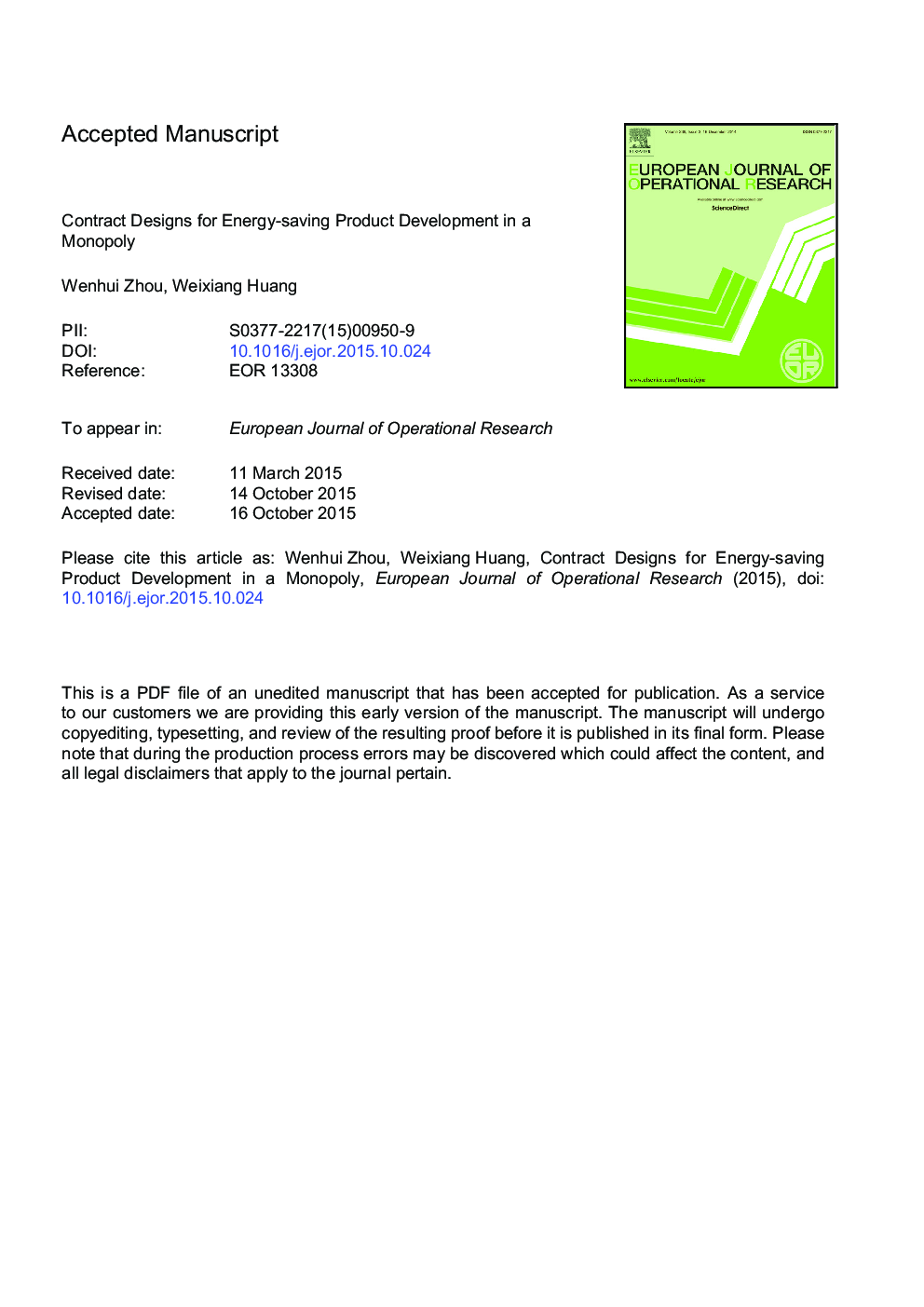| Article ID | Journal | Published Year | Pages | File Type |
|---|---|---|---|---|
| 6895938 | European Journal of Operational Research | 2016 | 36 Pages |
Abstract
We discuss two types of contracts for energy-saving products in a monopoly with the government's budget constraint. These contracts specify the subsidy, either a fixed amount (referred to as F-type contracts) or a discount (referred to as D-type contracts), and the threshold of the energy consumption level of products, below which the products are labeled as certified products and qualified for the subsidy. We model a three-stage game and give optimal design of the contracts under two different objectives of the government: minimizing the total energy consumption and minimizing the average energy consumption. Our results show that: 1) The optimal contract designs are the same under the two objectives; 2) If the subsidy budget is relatively low, the F-type contract is more preferable than the D-type contract, and vice versa; 3) The contracts' function of certification enables the government to take the advantage of the consumer environmental awareness to improve the environmental performance even when the government's subsidy budget is zero; 4) Both contracts benefit the environment. Under the F-type contract, only the government pays for the environmental improvement. In contrast, under the D-type contract, both the government and consumers pay.
Related Topics
Physical Sciences and Engineering
Computer Science
Computer Science (General)
Authors
Wenhui Zhou, Weixiang Huang,
